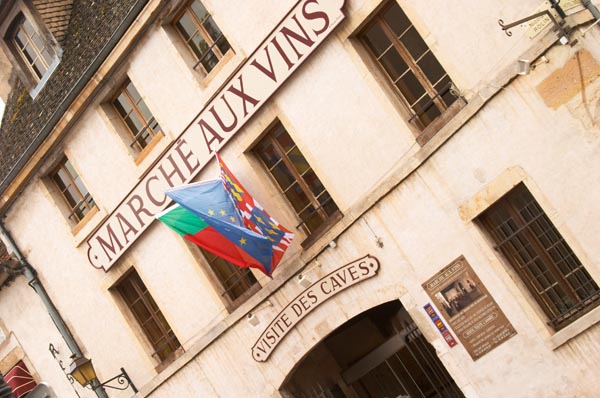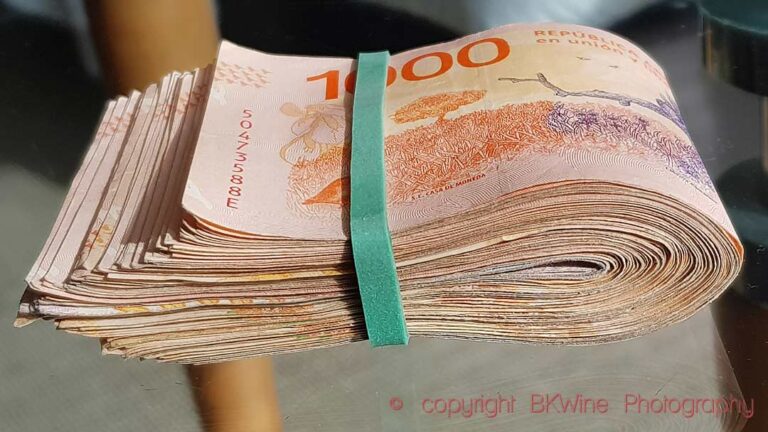In a recent article here on BKWine Magazine on the largest wine importers (in Sweden) I speculated about why many of the largest wine importers have several subsidiaries. In some it become a maze of companies, each headed (fully or partially) by the same people but under different company names.

The four most thorny wine importer groups
The four most “egregious” examples are Vingruppen, Primewine Group, Viva Wine and Spirits Group, and Altia.
Here are their corporate structures (or groupings):
Vingruppen is active in the following importer names:
- The Wineagency
- Vinovum
- Kajsa Wines
- Vinunic (probably the best-known name in the group)
- Wineworld,
- Yourwineclub
- Bonarome Wineworld AB
Primewine Group have these companies:
- BGS Wine Import
- Mondo Wine
- Multibev AB (ex Solera AB)
- Primewine Sweden
Legally it looks a little different. The Norwegian company Solera AS is the parent with the others as direct or indirect subsidiaries.
Viva Wine and Spirits Group have these operational companies:
- Chris Wine & Spirits
- Giertz Vinimport
- Mero Wines
- The Wine Team (ex Future Wines)
- Winemarket
Legally, it seems different. Viva Wine and Spirits Group is presented as the name of the “group” but is in fact a “parallel trading name” to Giertz Vinimport AB, which in turn is owned by Malbec Holding AB. “Parallel companies” are:
- Viva Wine & Spirits Group
- Ecologica the Organic Wine Company
- Casa Vinirona
Altia Holding Sweden AB, which is active as
- Altia Sweden AB
- Bevco AB
- Bibendum
- Philipson Söderberg
- Winter Wines Nordic AB
- Vinuversum AB
Altia also has a number of companies primarily engaged in spirits.
Previously, they also had a subsidiary called Premium Wines AB but it seems to have been discontinued.
It would be interesting to see how the ownership structure looks like for these different companies.
It is possible that I missed some names on the list above. It is not always easy to find who is linked to whom, and what affiliates they have.

More wine importers with subsidiaries or parallel firms
There are more examples of wine importer groupings. You can find all on our list of Sweden’s wine importers.
More examples:
Domaine:
- Domaine Wines & Spirits
- Sundance Wines
Fondberg:
- Fonberg & Co
- Modern Wines Sweden
Handpicked:
- A & L Handpicked Wines AB
- Klunk AB
- Nordic Beverage Company AB
Hermansson & Co
- Hermansson & Co
- Providential Wines & Spirits
Oenoforos:
- Oenoforos
- Carovin
Sigva:
- Sigva AB
- Vinia
Stockwine Group:
- Gullberg ”by Stockwine”
- Stockholm Wine Importers AB
The Beverage Group, TDG Invest:
- Brandpartners
- Spiritpartners
- Winepartners
There are no doubt other examples, and possibly the ones described above may have changed.
But why?
But why is it this way? Why do some wine importers have such a jumble of subsidiaries or parallel companies?
It can hardly be cost effective to have a number of legal structures, unless there are good reasons for it.
Here are some hypotheses.
It offers the opportunity to submit more quote samples to Systembolaget’s requests for tender
Could it be that with more affiliates you have a better chance to pull a winning ticket in Systembolaget’s tender “lotteries” (as a wine importer I talked to described the process)?
A wine importer who commented on the original article claimed that this was not so. I decided to ask Systembolaget and quickly got a response by press officer Lennart Agen. My question: “Can an importer submit several different samples to request for tender or is an importer limited to a certain number offer samples for each tender?”
Here’s the answer: “We have no limitations per importer. Most of our suppliers are working with multiple producers. Sometimes we have the requirement that one importer only may submit one offer per producer, i.e., they shall select the producer’s product that best corresponds to the tender specification. However, there is nothing to prevent a producer from working with different suppliers.”
In other words, this hypothesis was wrong. Having several different companies does not seem to give a greater chance of winning a tender from Systembolaget. At least not directly.
The importer wants to hide from the wine producer that they import wine from a competitor
Could it be that a wine importer wants to avoid a real or perceived “conflict of interest” towards the wine producer? Or to put it another way, might the importer want to hide the fact that he represent several competing producers in the wine region?
For example, perhaps a wine producer in, say, Chablis does not want to work with an importer who already imports chablis wines from another producer in Chablis. In such a case, the importer may choose to import wines from one chablis producer through its subsidiary XYZ and wine from the competing Chablis producer through its subsidiary ABC.
The wine importer can then broaden the range and get more chances to win Systembolaget’s tenders (draw a winning ticket in the “quotation lottery”).
They bought a company and kept the name
A simple reason is of course that you bought a company and decided to retain its name. There are several examples of this. Oenoforos with Carovin, most companies in the Altia Group as well as others.
But there are several things arguing against this in the long run.
The natural thing would be in such a position that, over time, perhaps after a few years, the various companies are integrated, thus simplifying the corporate structure. But this does not seem to occur in most cases.
Rather, the opposite happens: New subsidiaries are created from scratch within a group. Vingruppen is probably the one who has done this most enthusiastically.
They want to give a key personnel some sort of “benefit”
One reason may be that you want to create a separate company through which one can give a key staff some sort of advantage or benefit. For example, it could be that an important employee may become a shareholder, or perhaps be given the honour (?) to become Managing Director.
A case where this might be the case is Kajsa Wine. (I want to emphasize that this example is pure speculation, and I invented it just to illustrate the reasoning.) Kajsa Bergqvist was a famous name in the world of sports. She wanted to venture into the wine business. The name could become a valuable brand. By starting the company Kajsa Wines Vingruppen could (potentially) give Kajsa Bergqvist the opportunity to become shareholders through a minority stake in the company. (Again, this is pure speculation, intended as an illustration. I know nothing about how the company is owned.)
On the other hand, to be a minority shareholder in a company that is part of a group, and that cannot be sold freely, has a questionable value.
They want to isolate a risky or different activity
A separate company may also be a way to protect the parent company from too much exposure to a future risk. By putting the ‘risky’ business into a separate company, maybe you can isolate the risk better and reduce the group’s exposure.
Alternatively, perhaps the business of the company is so different that you do not want to confuse it by mixing it with the core business. An example of this is perhaps the Nordic Sea Winery, a wine producer and not a wine importer, a subsidiary Oenoforos. But this reasoning does not hold for two subsidiary companies that are basically involved in the same business.
A mystery…
But none of this seems to be strong enough motivation for the myriad of companies and subsidiaries in the wine importer business today.
What do you think?
Do you have any theories on why the Swedish wine importers have all these companies?
Or maybe some wine importer wants to share their reasoning? (You can actually write a comment anonymously…)











3 Responses
I’m presenting wines to different importers at different monopolies (Sweden, Norway, Finland)
Some companies put clearly they have different sister-companies , but not always occur
In my opinion the most negative fact is that importers only show interest in winning a tender.
So fine wines and wineries that do not meet the conditions of price, percentage of grapes, … are discarded.
Even having won the tender the importer, at the end of the sales period in Monopoly ignores the winery and wine, without creating an ongoing relationship. I think this attitude goes against, in addition to consumers interests the long-term interests of importers
That is indeed a side effect of the monopoly. In fact, the importers are in effect prohibited from establishing a relationship with the monopoly, according to anti-bribery regulations.
Also, the tender system and the short evaluation periods before products are de-listed increases the short-term-ism.
Serious drawbacks with the way the monopoly system works, although not explanations to why they companies operate under so many different names.
Dear Sir ,
My name is Blerim Shulina from Kosovo .
I am Marketing Manager of Sefa Wine Cellar located in Kosovo .
Our Wine cellar has around 18 products of wine including Grape Brandy .
We owns vineyards at the name of Sefa Wine Cellar .
Swedish market is very interesting for us. so we are looking for distributors ,wine importers or company , to have a cooperation for our products in Sweden market.
Any one who can express interest for cooperation , can contact me:
Blerim Shulina
Mob:+386 49 512 663
blerim@sefawine.com
http://www.sefawine.com
It will be my pleasure to negotiate for further steeps .
Best regards,
Blerim